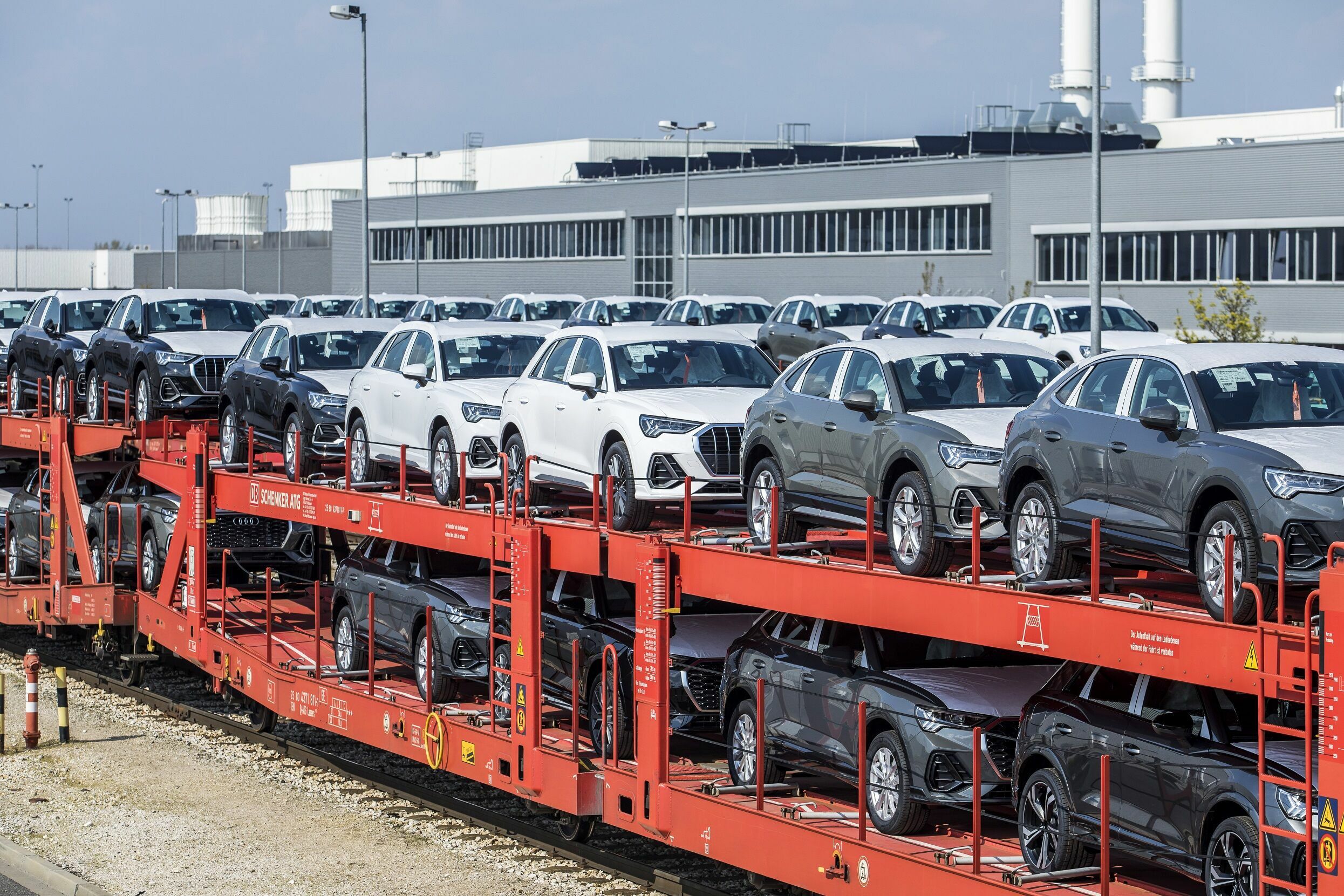The Train won't wait: An Efficient Railway Control System at Audi Hungaria
Audi Hungaria produces 750 cars and almost 8,000 engines per day. The supply of parts for production as well as the delivery of finished products is mostly carried out by rail. To make rail transport within the factory more efficient, Audi Hungaria uses the RAIL rail management system introduced in the Volkswagen Group.
Currently, three train pairs run between Győr and Ingolstadt every day. To ensure that this runs smoothly, more than 300 wagons have to be moved every day and a total of 14 loading and unloading points have to be served. In addition, the dispatching of arriving trains and the arrangement of departing trains are also part of railway operations.
RAIL manages these tasks. Each module in the system performs different tasks, such as checking invoices, visualising lead times and other monitoring activities. The system visualises the location of wagons and shows their loaded or empty status. At its communication interface, Audi Hungaria's railway management staff creates the sorting tasks, based on which the service provider carries out the physical movement of the wagons. The start and end of operations are also signaled by the service provider via the RAIL system. Status tracking is possible by tablet devices installed on the locomotives.
Trains departing from Audi Hungaria have an active status in the system so that the destinations, i.e. the other production sites of the Volkswagen and Audi Group, can already see the list of wagons arriving there and the arrival time. Of course, it also works the other way round, so that the colleagues from Győr can also see the data of the arriving trains in the system.
Requests for empty and redundant wagons are also registered on the RAIL interface. Thanks to intelligent wagon management, the system is able to coordinate incoming demand and thus unnecessary wagon running within the group of companies can be avoided. The RAIL rail management system increases process efficiency, optimises costs and also reduces environmental impact.
